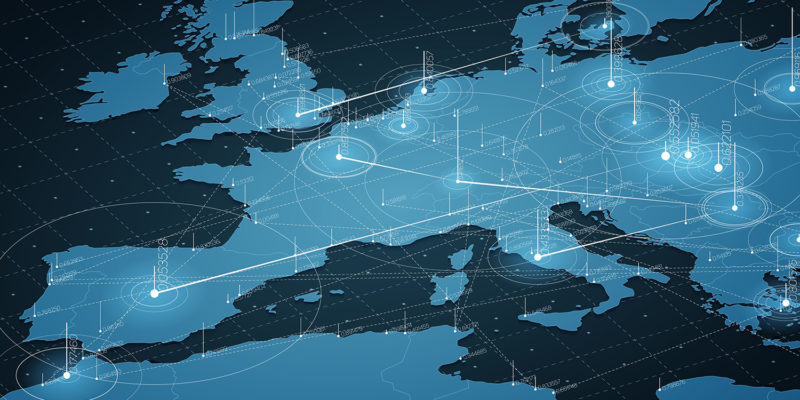EU’s Gas Demand-Reduction Plan: Impact on Pharma

The European Union agreed this week to reduce natural gas demand by 15%, starting August 1 and lasting through next March, to prepare for possible disruptions of gas supplies from Russia. The EU chemical and pharma industries weigh in.
The EU’s natural gas demand reduction plan
This week (July 25, 2022), European Union (EU) member states reached a political agreement on a voluntary reduction of natural gas demand by 15%, compared to their average consumption in the past five years, effective August 1, 2022 to March 31, 2023, to prepare for possible disruptions of gas supplies from Russia. The voluntary reduction becomes mandatory depending if a so-called, “Union alert” is triggered on security of supply, in which case the gas demand reduction would become mandatory. The move comes as Russia continues to reduce gas deliveries into the EU, which had depended on Russian gas for 40% of its supply before the invasion of Ukraine in late February (February 2022).
The agreement was reached by the EU’s Energy Council, composed of energy minsters from EU member states, and the agreement specified some exemptions and detailed scenarios that would allow for the relaxation of the reductions in certain cases in order to reflect the particular situations of member states and ensure that the gas reductions are effective in increasing security of supply in the EU. The Council agreed that member states that are not interconnected to other member states’ gas networks are exempted of mandatory gas reductions as they would not be able to free up significant volumes of pipeline gas to the benefit of other member states. Member states whose electricity grids are not synchronized with the European electricity system and are heavily reliant on gas for electricity production are also exempted in order to avoid the risk of an electricity supply crisis.
EU member states can request a derogation (i.e., an exemption from or relaxation of the measures) to adapt their demand reduction obligations if they have limited interconnections to other EU member states and can show that their interconnector export capacities or their domestic liquefied natural gas infrastructure are used to re-direct gas to other member states to the fullest. EU member states can also request a derogation if they have overshot their gas storage filling targets, if they are heavily dependent on gas as a feedstock for critical industries, or if their gas consumption has increased by at least 8% in the past year compared to the average of the past five years.
In addition, EU member states agreed to increase the role of the Council in triggering a “Union alert.” The alert would be activated by a Council-implementing decision, acting on a proposal from the European Commission. The Commission would present a proposal to trigger a “Union alert” in case of a substantial risk of a severe gas shortage or an exceptionally high gas demand, or if five or more EU member states that have declared an alert at a national level request the Commission to do so.
When choosing demand-reduction measures, EU member states agreed that they should prioritize measures that do not affect protected customers such as households and essential services for the functioning of society, such as critical entities, healthcare and defense. Possible measures include reducing gas consumed in the electricity sector, measures to encourage fuel switch in industry, national awareness-raising campaigns, targeted obligations to reduce heating and cooling, and market-based measures such as auctioning between companies.
Under the agreement, EU member states will update their national emergency plans that set out the demand-reduction measures they are planning and regularly report to the European Commission on the advancement of their plans. The new regulation is an exceptional and extraordinary measure and will apply for one year, and the European Commission will carry out a review by May 2023 to consider its extension in light of the general EU gas supply situation.
Feedback from European chemical and bio/pharmaceutical industries
Both the European chemical and bio/pharmaceutical industries have weighed in on the gas demand-reduction plan, with the European chemical industry being largely supportive and the bio/pharmaceutical industry having some reservations over the potential impact of energy rationing on bio/pharmaceutical production.
The European Chemical Industry Council (CEFIC), which represents European chemical manufacturers, issued its support last week (July 20, 2022), when the European Commission first issued its proposed plan, which was later evaluated by EU member states through the EU’s Energy Council.
“CEFIC appreciates the strong sense of urgency in the European Commission’s and Member States’ efforts to safeguard sufficient volumes of gas to enable our households and our economy to go through the next two winters,” said CEFIC in its statement. “It is an individual and collective responsibility, and the chemical industry is ready to play its role together with the Commission and the Member States. We applaud the leading role Commissioner Breton [Thierry Breton, the EU Commissioner for the Internal Market] is taking again. When it comes to Demand Reduction Plans, we agree with the approach proposed by the European Commission to promote market-based instruments, to identify common principles and criteria, and to provide guidance in identifying priority sectors in the extreme event of gas curtailment. A value chain and cross-border analysis is crucial, as the Commission has indicated,” said CEFIC in a statement.
Meanwhile, Medicines for Europe, which represents generic-drug and biosimilar manufacturers in Europe, expressed concern over energy rationing and its potential impact on bio/pharmaceutical production and medicines supply. Medicines for Europe says that its members have over 400 production sites in Europe and provide 70% of dispensed medicines in the region.
“Even a temporary shutdown of production would demand a huge effort and a long time for our industry to resume production due to technical challenges related to temperature control, hygiene, and impurities control and compliance with good manufacturing practice (GMP) requirements,” said Medicines for Europe in a July 20, 2022 statement. “Medicine production supply chains are currently operating under huge stress due to the war in Ukraine, COVID-related disruptions, logistics bottlenecks and inflation. An energy-related shutdown of production would have detrimental effects on the supply of critical medicines to patients in the EU and globally as our industry is a global supplier of these medicines. Disruptions can also affect suppliers to our industry (e.g., glass vials and bottles) and if energy sources are interrupted, the production of the final medicine will also be impacted. Most of the ICU [intensive care unit] medicines used in critical care are in the form of vials and ampules.”
In line with the European Commission’s guidelines on a European gas demand-reduction plan, Medicines for Europe is calling on governments in Europe to maintain energy supply to medicines production sites in the event of energy restrictions in Europe. The organization said it is engaged with the European Commission and that its members are in dialogue with national governments to assess the risks of energy rationing in all European countries. “It is critical going forward that we can work with authorities to maintain the continuous operation of pharmaceutical production in the context of possible future energy rationing,” added Medicines for Europe in its statement.







